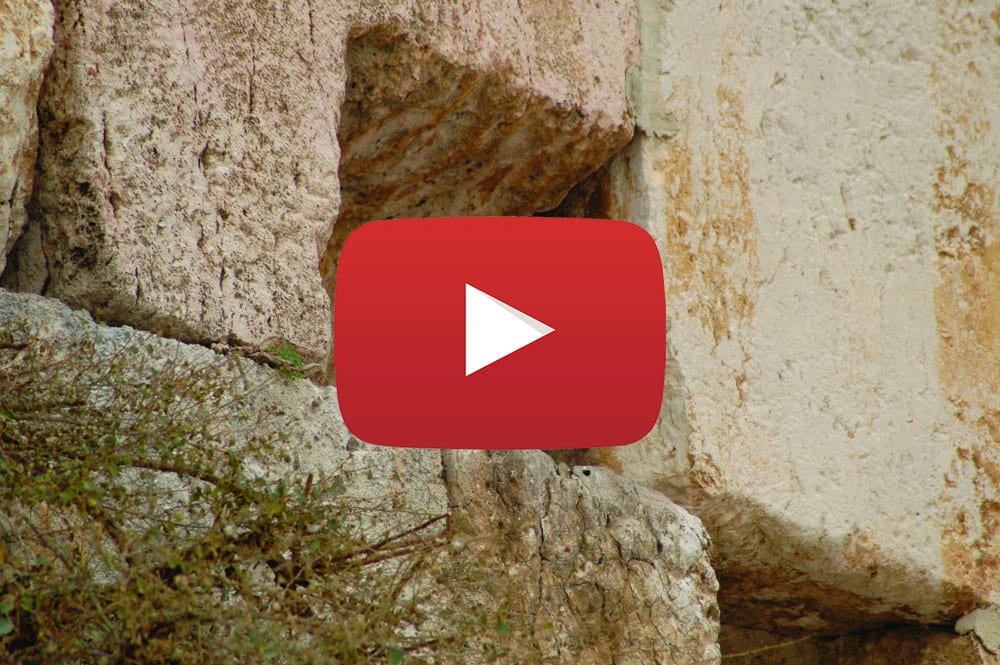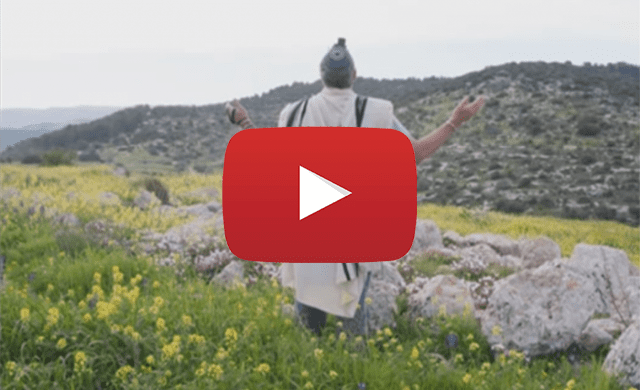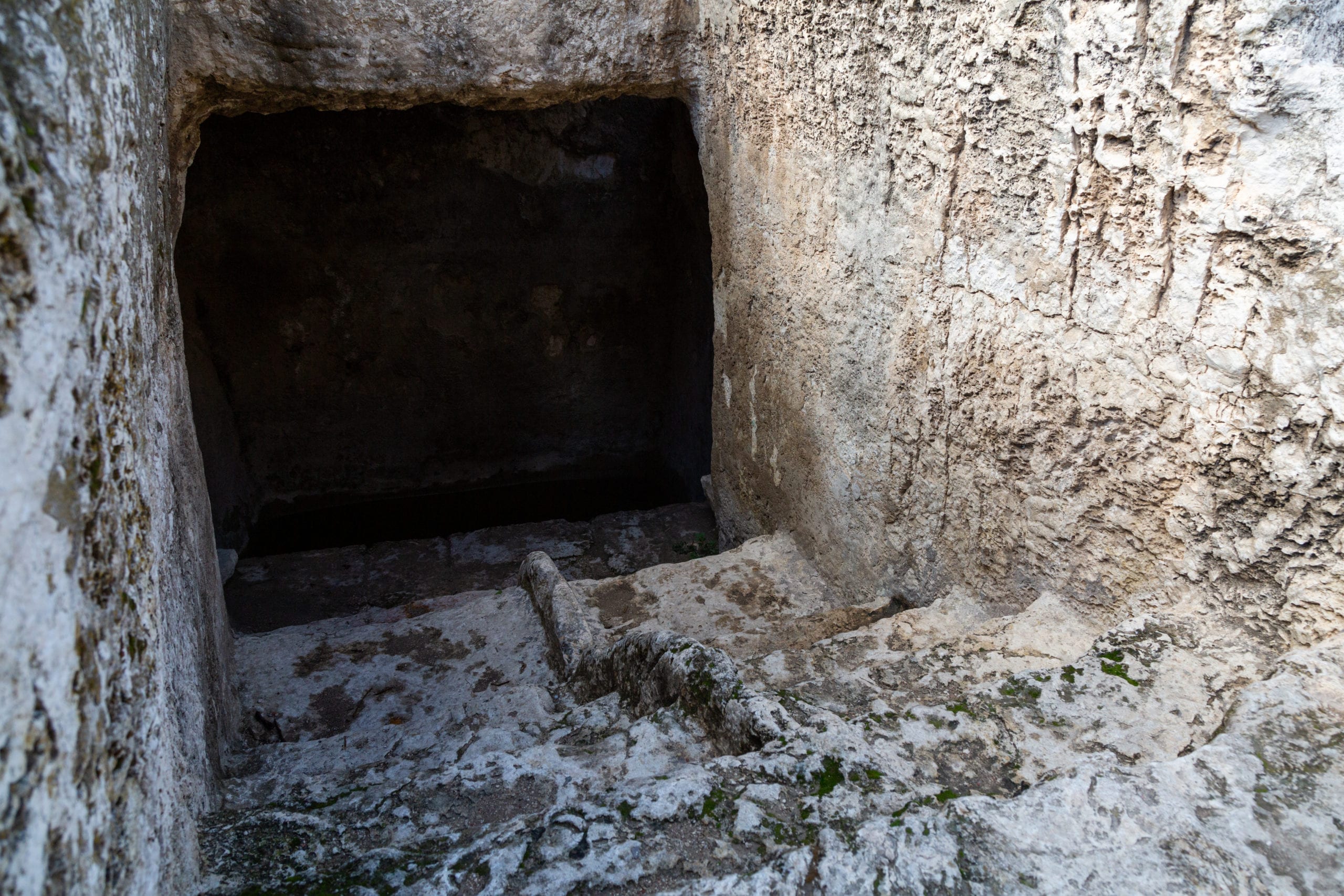
TORAH
NEVI'IM
KETUVIM
Chapter 5
Translation and Transliteration of
Listen to this chapter in Hebrew:
- Commentary
- Buy E-book
- Buy the Israel Bible
1Remember, Hashem, what has befallen us; Behold, and see our disgrace!
אזְכֹר יְהֹוָה מֶה־הָיָה לָנוּ הביט [הַבִּיטָה] וּרְאֵה אֶת־חֶרְפָּתֵנוּ׃
2Our heritage has passed to aliens, Our homes to strangers.
na-kha-la-TAY-nu ne-hef-KHAH l'-za-REEM ba-TAY-nu l'-nokh-REEM
בנַחֲלָתֵנוּ נֶהֶפְכָה לְזָרִים בָּתֵּינוּ לְנָכְרִים׃
5:2 Our heritage has passed to aliens
In the past century, we have merited to witness a reversal of this prophetic statement with our own eyes. Whereas Yirmiyahu bemoans the fact that Jewish land has been seized by foreigners, today, Jews have returned to their ancient homeland and reclaimed lands that have belonged to them from the time that they were promised by Hashem to Avraham and his descendants for eternity.
3We have become orphans, fatherless; Our mothers are like widows.
גיְתוֹמִים הָיִינוּ אין [וְאֵין] אָב אִמֹּתֵינוּ כְּאַלְמָנוֹת׃
4We must pay to drink our own water, Obtain our own kindling at a price.
דמֵימֵינוּ בְּכֶסֶף שָׁתִינוּ עֵצֵינוּ בִּמְחִיר יָבֹאוּ׃
5We are hotly pursued; Exhausted, we are given no rest.
העַל צַוָּארֵנוּ נִרְדָּפְנוּ יָגַעְנוּ לא [וְלֹא] הוּנַח לָנוּ׃
6We hold out a hand to Egypt; To Assyria, for our fill of bread.
ומִצְרַיִם נָתַנּוּ יָד אַשּׁוּר לִשְׂבֹּעַ לָחֶם׃
7Our fathers sinned and are no more; And we must bear their guilt.
זאֲבֹתֵינוּ חָטְאוּ אינם [וְאֵינָם] אנחנו [וַאֲנַחְנוּ] עֲוׂנֹתֵיהֶם סָבָלְנוּ׃
8Slaves are ruling over us, With none to rescue us from them.
חעֲבָדִים מָשְׁלוּ בָנוּ פֹּרֵק אֵין מִיָּדָם׃
9We get our bread at the peril of our lives, Because of the sword of the wilderness.
טבְּנַפְשֵׁנוּ נָבִיא לַחְמֵנוּ מִפְּנֵי חֶרֶב הַמִּדְבָּר׃
10Our skin glows like an oven, With the fever of famine.
יעוֹרֵנוּ כְּתַנּוּר נִכְמָרוּ מִפְּנֵי זַלְעֲפוֹת רָעָב׃
11They have ravished women in Tzion, Maidens in the towns of Yehuda.
יאנָשִׁים בְּצִיּוֹן עִנּוּ בְּתֻלֹת בְּעָרֵי יְהוּדָה׃
12Princes have been hanged by them; No respect has been shown to elders.
יבשָׂרִים בְּיָדָם נִתְלוּ פְּנֵי זְקֵנִים לֹא נֶהְדָּרוּ׃
13Young men must carry millstones, And youths stagger under loads of wood.
יגבַּחוּרִים טְחוֹן נָשָׂאוּ וּנְעָרִים בָּעֵץ כָּשָׁלוּ׃
14The old men are gone from the gate, The young men from their music.
ידזְקֵנִים מִשַּׁעַר שָׁבָתוּ בַּחוּרִים מִנְּגִינָתָם׃
15Gone is the joy of our hearts; Our dancing is turned into mourning.
טושָׁבַת מְשׂוֹשׂ לִבֵּנוּ נֶהְפַּךְ לְאֵבֶל מְחֹלֵנוּ׃
16The crown has fallen from our head; Woe to us that we have sinned!
טזנָפְלָה עֲטֶרֶת רֹאשֵׁנוּ אוֹי־נָא לָנוּ כִּי חָטָאנוּ׃
17Because of this our hearts are sick, Because of these our eyes are dimmed:
יזעַל־זֶה הָיָה דָוֶה לִבֵּנוּ עַל־אֵלֶּה חָשְׁכוּ עֵינֵינוּ׃
18Because of Mount Tzion, which lies desolate; Jackals prowl over it.
AL har tzi-YON she-sha-MAYM shu-a-LEEM hi-l'-khu VO
יחעַל הַר־צִיּוֹן שֶׁשָּׁמֵם שׁוּעָלִים הִלְּכוּ־בוֹ׃
![]() 5:18 Because of Mount Tzion, which lies desolate; jackals prowl over it
5:18 Because of Mount Tzion, which lies desolate; jackals prowl over it
Though the image of jackals running freely on Har HaBayit certainly reflects the devastation and desolation of Yerushalayim, some find hope even in the depths of darkness. The Talmud (Makkot 24b) relates that a number of leading Sages were visiting Yerushalayim following the destruction of the Temple, and they came upon the ruins of the Temple Mount. Upon seeing a jackal scamper across the holiest site in the world, three of the four rabbis began to cry. The great Rabbi Akiva, on the other hand, began to laugh joyously. Shocked, they asked him to explain his behavior. Rabbi Akiva explained that if the prophecies of destruction had indeed been fulfilled, we can be certain that the promises of redemption will also be fulfilled. The Jews have always maintained immutable optimism and unwavering faith that the Almighty will preserve His covenant with them, and in modern times He has begun to fulfill His promises of redemption.
19But You, Hashem, are enthroned forever, Your throne endures through the ages.
יטאַתָּה יְהֹוָה לְעוֹלָם תֵּשֵׁב כִּסְאֲךָ לְדֹר וָדוֹר׃
20Why have You forgotten us utterly, Forsaken us for all time?
כלָמָּה לָנֶצַח תִּשְׁכָּחֵנוּ תַּעַזְבֵנוּ לְאֹרֶךְ יָמִים׃
21Take us back, Hashem, to Yourself, And let us come back; Renew our days as of old!
ha-shee-VAY-nu a-do-NAI ay-LE-kha v'-na-SHU-vah kha-DAYSH ya-MAY-nu k'-KE-dem
כאהֲשִׁיבֵנוּ יְהֹוָה אֵלֶיךָ ונשוב [וְנָשׁוּבָה] חַדֵּשׁ יָמֵינוּ כְּקֶדֶם׃
![]() 5:21 Take us back, Hashem
5:21 Take us back, Hashem
This verse is one of the most significant verses in the entire book. Traditionally, when Megillat Eicha is read in synagogues on the ninth of Av, this verse is repeated at the conclusion of the reading, to highlight its significance and to end on a positive note. The verse emphasizes that Hashem will one day return the Jewish people to the Land of Israel, and renew the intimate relationship with Him centered around a rebuilt Temple in Yerushalayim. Moreover, it reminds us that a relationship with our Maker is a two-way street; we return to God, and God returns to us. Our generation has been blessed with the beginning of the fulfillment of this promise. The Jewish people have started their return to the land of their fathers, and the realization of the dream of redemption has begun. We sincerely pray for the fulfillment of the final redemption, a complete return to Hashem and the coming of the Mashiach.
22For truly, You have rejected us, Bitterly raged against us. Take us back, Hashem, to Yourself, And let us come back; Renew our days as of old!
כבכִּי אִם־מָאֹס מְאַסְתָּנוּ קָצַפְתָּ עָלֵינוּ עַד־מְאֹד׃ [השיבנו יהוה אליך ונשובה חדש ימינו כקדם]









